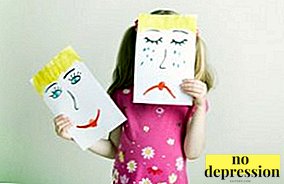Age crises "pursue" a person all his life, from birth.
However, the crisis - it is not something bad and terrible. For example, in Chinese there are two meanings of this word: possibility and danger.
The Greek language interprets the term as a "turning point". In any case, the crisis is the beginning of a new life phase, the opportunity to move to a higher level of development.
If you know all the features of age crises, then you can survive them painlessly and exit with minimal losses.
The essence of the concept

In psychology, a crisis is called a short period in the life of an individual who precedes the transition to a new stage of development personality.
This period is characterized by various changes in both physical and psychological condition.
Every person experiences crises in different ways. Some pass them painlesslyothers have some difficulties. After all, the old, but such a familiar situation is collapsing, a person has to leave the comfort zone and look for new roads.
A crisis is an opportunity to analyze your life, to think, to choose a new goal, which is more consistent with the present level of the individual.
Although in psychology it is customary to single out a “crisis age”, but the onset of a turning point in all happens at different times. For example, in women, the so-called midlife crisis happens earlier than in men.
Also individually and during transition periods. The intensity of the manifestations, the duration depends on various factors: the level of education, social environment, marital status, relationships with relatives, etc.
Age crises often associated with a change in emotional state. People begin to have depressive moods, nervousness, bouts of apathy. Children show capriciousness, disobedience, conflict.

If children's crises are well studied, then adults remain unexplored until the end.
As well as there is no consensus on this. Some psychologists believe that human development and life should take place harmoniously and without cutting change.
In their opinion, the crisis is the result of poor education and pamperedness. However, most scientists do not deny the existence of transition periods.
The crisis does not start suddenly. In its development, it passes through several steps:
- Precritical stage. Some contradictions arise between the individual and the external environment. He suddenly realizes that he lives wrong and wants to change the situation.
- Critical stage. Contradictions are growing, a person is trying to realize his ideas about the ideal life. At this stage, he is faced with the inability to translate desires into reality and an internal conflict occurs.
The conflict ends with the fact that a person adjusts desires in accordance with the surrounding reality.
- Postcritical stage. The person rethinks his aspirations, adopts new forms of life and a new reality, real, and not existing in dreams. From this moment its harmonious existence continues.
Who studied?

The founder of the theory of age crises is L.S. Vygotsky.
It was he who introduced the term. Also studying these issues involved L.I. Bozovic.
From her point of view, the crisis is the transition from one age stage to another. Therefore, crises always happen at the intersection of ages.
Psychologist K.N. Polivanova researched adult crises and gave them their own definition. In her opinion, these stages of life are characterized by the destruction of the old life situation and the formation of a new one.
Age crises are caused both by physiological factors (hormonal restructuring, physical maturity, aging of the body) and social factors (change of place of work, life status, and society in which the individual finds himself).
Transition periods and their characteristics
In psychology, there are crises of child development and adults. In childhood turning points fall on the next age:
- newborn;
- 1 year;
- 3 years;
- 7 years;
- puberty period.
Newborn

A little man, just born, is already in a crisis situation.
From the familiar environment it moves to completely new and alien his.
The child has to adapt to new conditions, acquire skills and abilities.
1 year
The child already has a lot of new features and skills: walk, eat food, speak words. Therefore, he has new needs, the child seeks to be independent.
The crisis is associated with a lack of understanding on the part of adults, to whom the baby reacts affectively.
3 years
This is the first truly difficult period in the life of a little man. The child has appears its "I"His behavior is based on the principle of "I myself."
The kid separates himself from others, tries to build an absolutely new model of relations with adults. Main manifestations crisis of three years: stubbornness, whims, obstinacy, conflict, autonomy, protest.
In some children, conflicts with parents become permanent, the child turns into despot and manipulator. There is jealousy towards the younger members of the family.
The desire to be independent is a positive phenomenon. But for some children, it acquires hypertrophied form. This leads to self-will, complete lack of obedience.

Parents should show the highest degree of patience to cope with the baby.
You can not be violent, but do not allow permissiveness.
The quest for independence must be realized. For example, the kid removes toys himself, walks with the dog, waters the flowers, helps mom around the house. Parents should just be there to prevent danger.
7 years
At age 7, the child goes to school, that is, falls in a new social environment. He needs to build relationships with new people: classmates, teachers.
In 7-8 years, the formation of the social "I" of man. Also gradually expanding the scope of the baby. He gets a lot of skills, knowledge.
Parents task - help cope with a large amount of information.
Characteristic features of the seven-year crisis:
- Generalization of failures. If a child does not do well with his studies, he transfers these failures to other areas. He has a feeling of inferiority, humiliated vanity.
- The ability to trace the relationship between actions and results. The child can already comprehend what follows his actions.
- Mannerism. The kid begins to hide something from his parents, makes faces, builds himself up as an adult.
- Hiding feelings. If up to this age all emotions and experiences had external expressions, now the child knows how to hide what is bad for him.

In other words, the child appears own inner life separate from parents.
Internal experiences imprint on behavior.
Adults should always be close, you can not ignore the experience of the child, because for him every little thing is of great importance. Baby should feel safe and loved.
Puberty period
In adolescence occur global physical changes in the human body: intensive growth, hormonal changes.
Because of this, the internal organs begin to work differently. For example, the heart may not keep pace with the growth of the skeleton and "fail." All this causes instability of the emotional background.
Teens are beginning to be interested in their appearance, to compare themselves with others. Idols and ideals appear. Interpersonal communication, friends, companies come to the fore.
Teen wants to look like an adulttherefore it is often rude, indulges in some liberties of behavior. He does not tolerate treating himself as a child, psychological abuse from parents.
At this age, children often leave home, rebel, violate prohibitions, act against the will of their parents. This is especially evident in families where parents do not perceive the personal opinion of the child, considering it small and insensible.

The dialogue between parents and adolescents should be based on the principles of communication between adults.
Important listen, understand and support positive aspirations.
Negative and against the law must be stopped. It is proved that if a teenager engages in sports or other extracurricular activities that he is interested in, he is more easily in a crisis of puberty.
17 years
The crisis of 17 years coincides with the transition from school to adulthood. There is no longer a familiar setting and life schedule, adapt to new more severe and difficult conditions. If a young man or girl continues to study at the university, the transition is easier.
During this period, the person appears many fears: not to pass exams, not to enter university, fear of the army. Against this background, neurotic manifestations may occur: fainting, headache, tachycardia.
The main feature of this period - professional self-determination. New conditions, new people and new activities require great strength to adapt.
A person really needs the support of loved ones, understanding. Parents must become a reliable rear and shoulder, which can be supported in a difficult situation.
Adult crises are different from children’s in that proceed on the inner plane. Outwardly, they almost do not appear.
30 years

In some people (mostly girls) the turning point is 25 years old.
Psychologists call it "Early maturity". The man has already worked, many have started a family, have given birth to children.
But, not everyone is happy with their lives and start looking for new ways. If the girl is still not married, she begins to suffer from this, passionately wanting to have a family, a child.
The young man usually thinks about career growth and the change of profession, if it does not bring him the desired income. In 30 years, most families are collapsing, as the partners could not meet the expectations of each other.
40 years
This period is called "Midlife crisis". Most already have a stable life, a family, and grown children.
Suddenly, unexpectedly for others and for oneself, a person begins to get bored, think about meaninglessness of existence. It seems to him that the years are leaving, but he did not have time. At the age of 40, husbands go to their mistresses, wives find young boyfriends.
Public stereotypes put pressure on people: youth is great, old age is the end of everything. Psychologists advise not to look back, so as not to fall into depression.
Important create a new aspiration. You can do what you have long wanted: to travel, learn to play the guitar, etc. The recommendations of psychologists are as follows: do not be afraid of change.
60-70 years old

This crisis is associated with aging of the body and fear of old age.
A stereotype puts pressure on a person that life is over, and only joyless existence lies ahead.
The situation worsens if people have health problems or there was a loss of loved ones.
Many themselves exacerbate their lives by the fact that cease to move, develop, be interested in new. In fact, the man has already given his debt to all: he raised children, worked his time.
Now you can do only your desires: travel, relax. In addition, old age is not insanity, it is wisdom and life experience that can be useful to young people.
The main manifestations of the crisis and ways out are given in the table:
Age | Manifestations | Solutions |
1 year | Capriciousness, tantrums, protest | Skill development, translation of communication into the game |
3 years | Stubbornness, negativism, rebelliousness, the desire for independence | Supporting the formation of the “I”, suppression of negative manifestations, non-response to manipulations |
7 years | Generalization of failures, mannerism, secrecy, loss of immediacy | Providing opportunities for new activities, emotional support, the formation of self-confidence |
13-14-15 years old | Separation from parents, rudeness, desire to look like an adult, imitation of idols | Building trust, lack of pressure, coercion, help in all situations |
17 years | Fears, nervousness, uncertainty about the future, maximalism | Assistance in choosing a life path, gaining confidence in your strength, providing a reliable rear |
25-30 years | Rethinking goals, striving for career change | Finding new goals, striving for new achievements |
40 years | Depression, apathy, loss of meaning of life, regret for missed opportunities, fear of becoming unclaimed | Acceptance of yourself and the situation, refusal to return to the past |
55-70 years | Fear of old age, a sense of meaninglessness of existence, a sense of uselessness | Getting pleasure from life, helping friends, doing your favorite thing |
With the crises of age development people faces throughout life. Some people experience them almost painlessly, others - with great losses and mistakes.
However, the crisis is necessary so that the individual can move to a higher level of development and achieve more.
Age Crises of Development:



